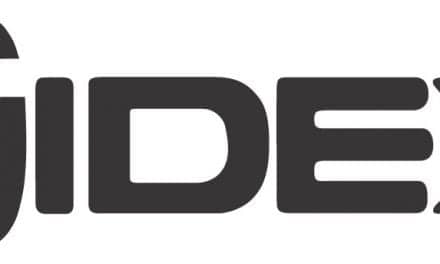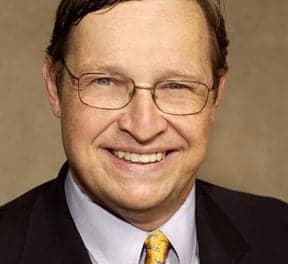By Melanie Hamilton-Basich
Michael Andreozzi, BS, BC-HIS, has been involved in the hearing care industry for more than 40 years, starting as a second-generation hearing aid retail store owner. He is a longtime advocate for hearing healthcare and has been a mentor to hearing aid specialists and a leader in the field. He has a new role as brand ambassador for Beltone and was recently named the next president of the International Hearing Society. He has also been chosen as the recipient of the 2023 Hearing Review Professional Development Award presented at the 2023 International Hearing Society Convention for his contributions to the hearing care industry and the advancement of the hearing aid specialist profession. Here, he talks to The Hearing Review about the biggest changes in the hearing industry from his perspective and what the future holds.
Further reading: International Hearing Society’s 2023 Award Winners Revealed
Hearing Review: You’ve been extremely involved in the hearing industry over the past 40 years or so through your retail business, and as a member of both the Rhode Island Licensing Board and the International Hearing Society Board. Can you share what you feel are some of the biggest changes you’ve seen in hearing healthcare in recent years and how you think these will affect audiologists and hearing aid specialists?
Michael Andreozzi: Sure. The industry and the profession have changed immensely in the time that I’ve been in it. One of the things we’ve seen more recently is insurance becoming a big part of the hearing profession and the involvement of hearing benefit managers (HBMs). Those types of things were never as present over the last couple decades as they have been in the last four or five years at a large scale. So having a way to manage the insurance aspect of whatever kind of practice you’re in has been the biggest challenge. I hear about it every single day. For folks that I speak with, the common questions are, how much insurance should I take? How much should I not take? How do I integrate it into my practice properly? How do I bill for it? Should I not take it? Should I be more of a boutiquey type of hearing aid practice and not take insurance at all? And we’re seeing those things happen every single day in the marketplace.
I would say the other piece of it is that Medicare Advantage is such a big part of the world we live in today in the United States. About 50% to 60% of the population aged 65-plus has opted into some kind of Medicare Advantage plan that has a hearing aid benefit attached to it, which was not the case five or six years ago. They’re wondering what that benefit is and how they take advantage of that benefit in their insurance place. So as someone who owns a hearing aid retail business or an audiology practice, you’re now up against working with a third-party administrator—the HBM—to help execute on those benefits, and that’s been a big challenge for people who run practices.
In the past year the most obvious change has been over-the- counter (OTC) hearing aids. That’s been something that has been talked about for years, but we’re just going on a year now that it’s actually been put into legislation through the government. That came with so much concern and so much conversation, and here we are a year later and we look in the mirror now and ask, what did it do to the business?
Well, for most people in audiology or private practice, it really didn’t change their practice much. And I would say most of the people I speak with would say that in some instances it has enhanced their business because there’s been a much bigger marketing presence increasing awareness of hearing loss in a lot of ways in different advertising forms that has caused more people to look at hearing instruments as a mainstream device, which is good.
The one thing I’ve seen for sure is that people still don’t buy over the counter hearing aids versus prescription hearing aids in abundance. It’s still something that they put off buying for many years. So it involves some kind of shepherding process, I like to call it, to get people to get to that point to buy hearing aids. But OTC has been a big thing.
Digital marketing has become important to promote your practice on a large scale and drive people into your clinics. I love seeing some of the great minds in our profession that have come up with the best ways to segment it and target those individuals with hearing loss to get them to come into a hearing clinic to find out more about what a hearing aid and hearing clinics can do for them.
We’re seeing a lot of younger patients come through the doors now, too, and that’s thanks to some of the OTC stuff and also just the fact that we constantly see people with technology like AirPods in their ears today, which makes the use of hearing aids seem more mainstream in some respects. So having to market and advertise to and deal with a younger patient base versus your typical 75- or 85-year-old patient that we’ve dealt with for years is making people look at things in a different way. That’s been a significant change.
HR: I know that in the past you’ve also been very involved in advocating for hearing care legislation and have lobbied in Washington DC on key issues. What legislation do you think is most important for hearing care professionals to be aware of right now?
Andreozzi: The Medicare bill that’s in Washington today is something that’s been getting a little bit more traction than it has in the past. It’s something to pay close attention to.
On the audiology side, they’re trying to allow for Medicare to pay for insurance reimbursements for some of the testing services that an audiologist does, and they’re also trying to get hearing aids covered for certain losses. For now, it’s written so it will cover severe to profound hearing loss, but they’re trying to broaden that to a larger scale. The issue is the cost, so getting that kind of a bill to get across the finish line in Washington is challenging.
The OTC legislation was really brought up to drive down the cost of hearing aids because they felt like hearing aids were too expensive for the normal person to purchase. They felt like having over-the-counter hearing aids was going to open up the access and drive the cost down, and people would flood in to buy them because now all of a sudden the price barrier would be removed. And I can tell you a year later that it has not happened. It hasn’t happened at a large scale. I don’t even think it’s happened at a small scale. Over- the-counter hearing aids are being sold, but not to the degree that I think the government thought it was going to happen to satisfy the reason why they did it.
HR: You’re currently president-elect of the International Hearing Society. Can you share some of your goals for when you begin your tenure as president and also what you’d like to see happening in the industry as a whole?
Andreozzi: Yes, the one thing I would say that we want to really try to do is to bring more hearing instrument specialists into the field because there’s going to be more and more of a need for more people licensed in this business. We’re seeing a lot of audiologists retiring as they hit certain age brackets, and the number of new audiologists coming into the field is not keeping up at the same pace. So that’s something that I’m really passionate about.
And also having more people actually become members of the International Hearing Society so that we have a larger voice in Washington and in the profession. That’s something that’s really important. I think, unfortunately, a lot of people who enter the field are not really presented with the facts of what the International Hearing Society does for the hearing aid specialists, and some of them don’t know enough about it. It’s something that has to really happen. If you’re an audiologist in the field, you have to join one of the associations in order to get licensed and get an affiliation. If you’re a hearing aid specialist, that’s really not the case, except at your state level. We’re the only organization that represents them across the country and in Washington. So it’s critically important that more people understand what the benefits are of becoming a hearing aid specialist, and of becoming part of the International Hearing Society.
The other thing that I would love to be able to see done on a large scale is for hearing aids to become what I consider to be more mainstream in society. So they would be no different than the eyeglasses I wear that are a normal part of the way the world works today. I’d really love for hearing aids to fall into that category over a period of time. I’ve talked about it for years, saying, “Oh, we need to make hearing aids sexy.” I don’t even know if that’s the right terminology to describe it, but we need to make them more mainstream so that hearing aids are a part of life for anybody, whether you’re young or old.
And I think that we’re in a great position today to be able to do that because so many people walk around with something in their ear now. You don’t know if it’s an earbud, you don’t know if it’s a hearing aid, you don’t know if it’s a crossover unit. You have no idea.
When I look around all the time when I’m in public places like restaurants, if somebody has earbuds in and they’re white or black colored and a waiter’s talking to those people, they think they’re listening to music. They don’t really think they’re utilizing them to hear and enhance a conversation, whereas a hearing aid’s designed for that. So how do you find a crossover to link those two things together so that people understand that it’s being used for a certain purpose? It’s a goal of mine to work toward educating both consumers and professionals so that we have a crossover.
The other thing I think is important is how, as my dad Rocco Andreozzi told me when he first started training me in the hearing aid business, “People don’t come in to buy hearing aids. They’re always sold.” At the time I didn’t understand that. But I fast forward to today, and I think about all my 40 years in the business, I never had one person walk in the office to say, “Hey, I’m here to buy my hearing aid today.” It just never happened.
Here we are in a very modern era of hearing aid technology and digital media, and over-the-counter hearing aids. But we still have this dilemma of uncertainty about why people don’t actively go out to buy hearing devices.
So I want to be able to find a way to bridge that gap, and I think it’s something that great minds out there will do. We’ll find something in a marketing campaign that will make people more aware that hearing aids are something that are very helpful. It’s not something that should be a stigma; it should be something that’s a part of life to make your life more enjoyable and put you into conversations better. So those are the things I’m really focused on as I move forward.
Photo: Michael Andreozzi






Outstanding information provided by one of the best ambassadors in the hearing aid industry. I’m confident in the leadership and goals moving forward into the future.